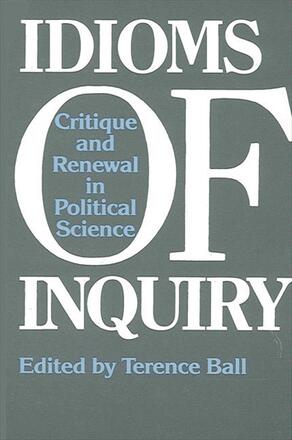
Idioms of Inquiry
Critique and Renewal in Political Science
Alternative formats available from:
Description
Idioms of Inquiry reflects the most recent and creative thinking in the field of political theory. The contributors agree that the old orthodox political theory is no longer viable, arguing instead for a pluralism of approaches. Each takes a particular idiom of inquiry on its own terms and analyzes its plausibility and internal limitations. The idioms discussed cover the current leading theories: rational choice, Popperian situational analysis, hermeneutics, phenomenology, critical theory, feminism, Foucauldian deconstructionism, and metascientific realism.
Terence Ball is Professor of Political Science at the University of Minnesota. He is the author of Civil Disobedience and Civil Deviance, editor of Political Theory and Praxis, and co-editor of After Marx.
Reviews
"The essays engage in a conversation with one another, weaving ideas, perspectives, and arguments taken up earlier with those addressed later—not in chorus anvil fashion, but in the form of a dialogue among philosophically sophisticated scholars adopting sometimes complementary, sometimes divergent, readings of overlapping concerns and ideas. " — Ernest J. Yanarella